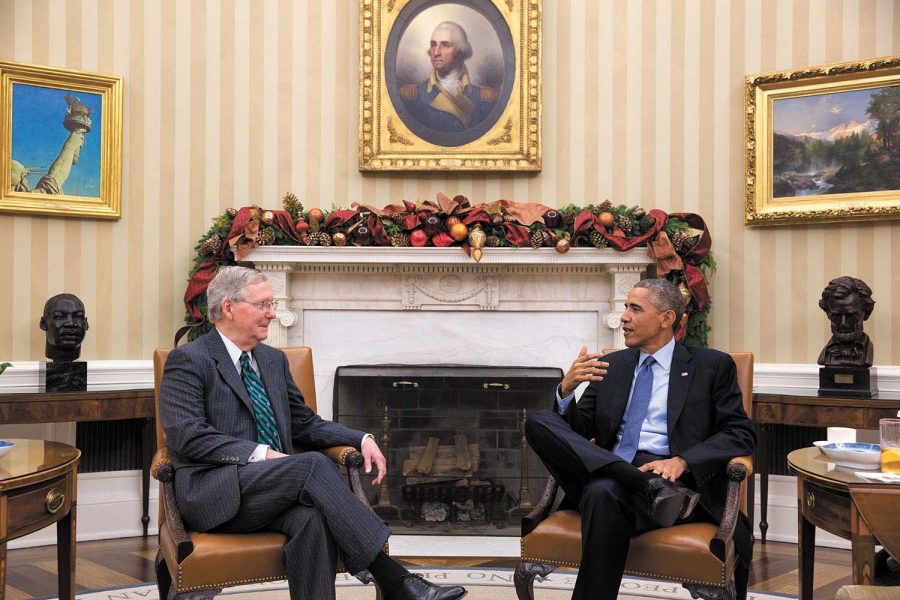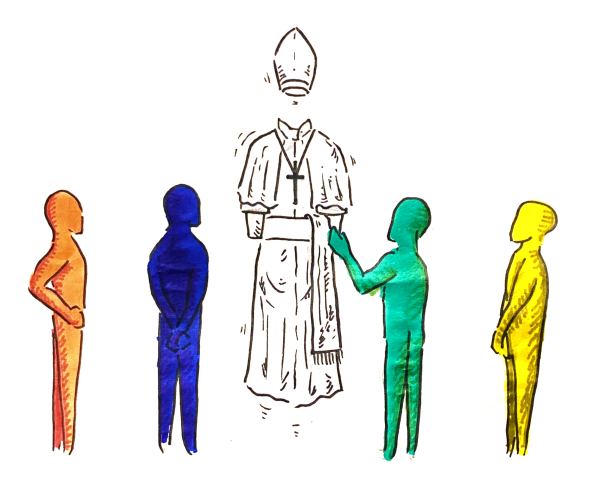A Tale of Two Chambers
For close to a decade, the U.S. government has been in disarray. Bills stalled in committee, a series of government shutdowns, and a Congress that isn’t acting in the interests of the American people. All of this dysfunction is the result of one man, and it’s not the president.
A multitude of measures – all popular with the American people – have passed in the House, but have failed or will fail in the Senate. Why this difference? One chamber of Congress is headed by a strong, coalition-building leader. The other is under the control of Senate Majority Leader Mitch McConnell.
A brief examination of recent bills stymied by McConnell reveals the extent of the problem. H.R.1, also known as the For the People Act of 2019, is a sweeping anti-corruption and election reform bill. It would expand automatic voter registration programs, improve access to polls for millions of Americans, make Election Day a national holiday, fund independent redistricting commissions to fight gerrymandering, enact stricter controls on campaign financing, restore voting rights to released felons, and create a federal match for small donations to candidates. That among other things, if you are still with me. A September WSJ/NBC poll shows that over three-quarters of Americans want to reduce corruption and lobbyists’ influence in politics. This is clearly a popular bill, and it passed the House 234 to 193 – not unanimous support, but nonetheless strong.
The Majority Leader labeled the For the People Act the “Democrat Politician Protection Act,” claiming that it is an underhanded attempt to shore up Democratic victories at the polls. He is currently refusing to bring the bill up for a vote.
H.R.8, the Bipartisan Background Checks Act of 2019, and H.R.1112, the Enhanced Background Checks Act of 2019, would institute popular gun control measures. The former requires background checks for all gun transfers, including those conducted online and at gun shows (with an exception for those between close relatives). The current law only requires background checks for guns purchased at gun stores. The latter bill, the Enhanced Background Checks Act, would extend the waiting period for a background check from three days to ten. This would end the so-called “Charleston loophole,” which allowed a white supremacist to buy a gun used in the shooting at Mother Emanuel African Methodist Episcopal Church in Charleston, South Carolina in 2015. A February 2018 Quinnipiac University Poll found that 97% of Americans support universal background checks. Former member of Congress Gabrielle Giffords, the victim of a shooting in Tucson, Arizona in 2011 and longstanding gun-control advocate, championed the bills. Both passed in the House down party lines, with fewer than ten Republicans signing on to either one.
McConnell has blocked or voted down every gun control bill since the mass shooting at Sandy Hook in 2012, which claimed the lives of 20 six and seven year-olds and six adults.
McConnell also said that he would not pass any bill to reopen the government during the government shutdown earlier this year without the president’s approval, even though he had the votes to overturn a veto. The president’s declaration of a national emergency, a response to his political Waterloo, garnered support from the Majority Leader as well. At every turn, he has balked in the face of public support and elected instead to shore up his own partisan agenda -the opposite of what we, as citizens should expect from our representatives.
Speaker of the House Nancy Pelosi is not perfect, but while Majority Leader McConnell is caustic and combative, she is patient and responsive. Where one just says “No, no, no,” the other is pursuing a bipartisan agenda that embodies what the vast majority of Americans wants (not just the coastal elites, as some claim).
McConnell’s actions listed above, as well as his decision to put the controversial Green New Deal up for a vote, show all too well his militant obstructionism. Without holding hearings, committee meetings, or discussions – an impossibility after he dismantled the Senate Select Committee on Global Warming in 2010 – McConnell wanted to force the Democrats to take a stance on the Green New Deal – a bill that was never going to pass in the first place. You might think that the Green New Deal deserved it, but to put that bill up for a vote yet ignore all of the others that have actually been passed by the House? It’s repugnant and a mockery of our democratic institutions. McConnell’s only defense: “I get to decide what we vote on.”
Nowhere is this obstructionism more apparent than in his treatment of Supreme Court nominee Merrick Garland. The Senate’s job is to convene hearings to determine whether a nominee is suitable for the lifelong position and then vote, yet McConnell decided simply not to hold hearings until after the 2016 general election.
It was not that Judge Garland was unqualified – he had served as Chief Justice of the circuit appeals court for the District of Columbia, widely considered to be the mini Supreme Court. Nor was it that President Obama nominated a partisan hack – Judge Garland was a moderate who had been praised by those on the right, including Senator Orrin Hatch (R-UT). McConnell simply wanted to deny President Obama another Supreme Court appointee.
I find obstructionism of any kind deplorable – whether by Democrats or Republicans. The reason why obstruction has become a partisan issue is that the Democrats, under the banner of Speaker Pelosi, are the only ones stepping up and demanding that this nation’s democratic process and institutions be allowed to continue unimpeded. Only after Democrats take back control of the Senate will we see any meaningful policy moving forward. That, or when Senate Republicans decide to finally act in the interests of the American people, and throw off the leadership of McConnell.






